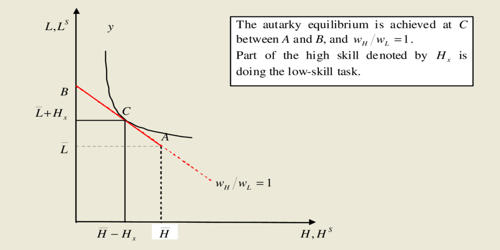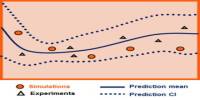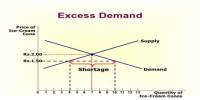Autarky means economic independence or self-sufficiency. It is the characteristic of self-sufficiency; the term usually applies to political states, societies, or to their economic systems. It is an economic system of self-sufficiency and limited trade. Autarky exists whenever an entity survives or continues its activities without external assistance or international trade. It refers to the state of self-reliance, and it typically is applied to an economic system or nation characterized by self-sufficiency and limited trade. It is an economic policy to have a closed economy and not allow any external trade.
A country is said to be in a complete state of autarky if it has a closed economy, which means that it does not engage in international trade with any other country. If a self-sufficient economy also refuses to conduct any trade with the outside world then economists may term it a “closed economy”. These systems are the opposite of liberal economic systems, which encourage the free flow of goods and services. For example, imposing tariffs and quotes may restrict trade even if it can not be entirely abolished. Autarky in the political sense is not necessarily an exclusively economic phenomenon; for example, a military autarky would be a state that could defend itself without help from another country or could manufacture all of its weapons without any imports from the outside world. In the nineteenth century, Japan was an example of a closed economy with virtually no contact with the outside world.
Autarky may be a policy of a state or other entity when it seeks to be self-sufficient as a whole, but also can be limited to a narrow field such as possession of key raw material. Autarkic countries are those which do not participate in international trade and do not receive any outside support or aid. For example, many countries have a policy of autarky with respect to foodstuffs and water for national-security reasons. Very few full autarkies exist today: North Korea and Nazi Germany are two examples from recent decades. By contrast, autarky can result from economic isolation or from external circumstances in which a state or other entity reverts to localized production when it lacks currency or excess production to trade with the outside world. Autarky bears some resemblance to mercantilism. Mercantilism is an economic philosophy that seeks to limit imports and accumulate gold and silver. The equilibrium price in autarky will be a relevant reference to analyze the impact of certain variables on the real exchange rate.
















